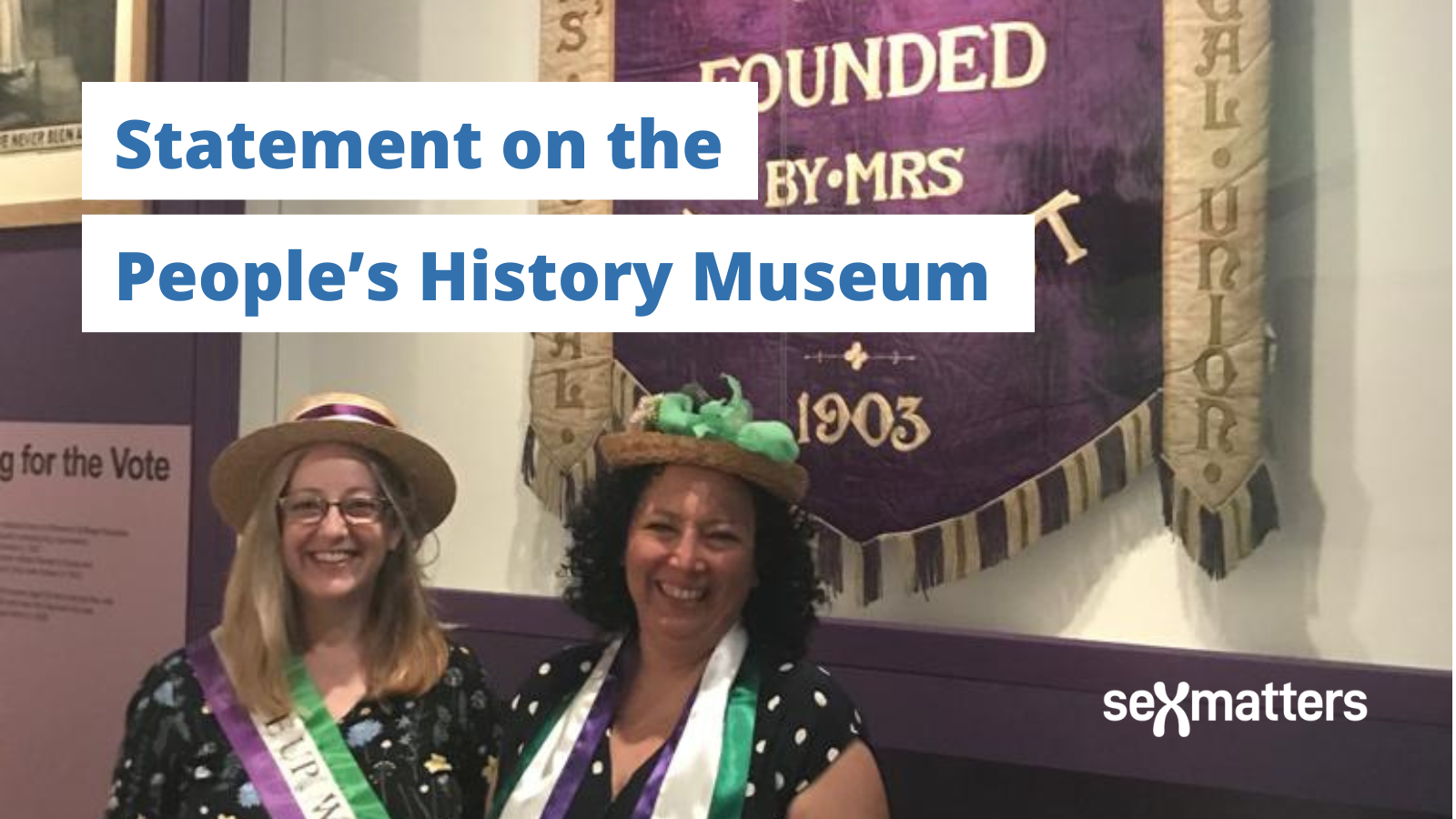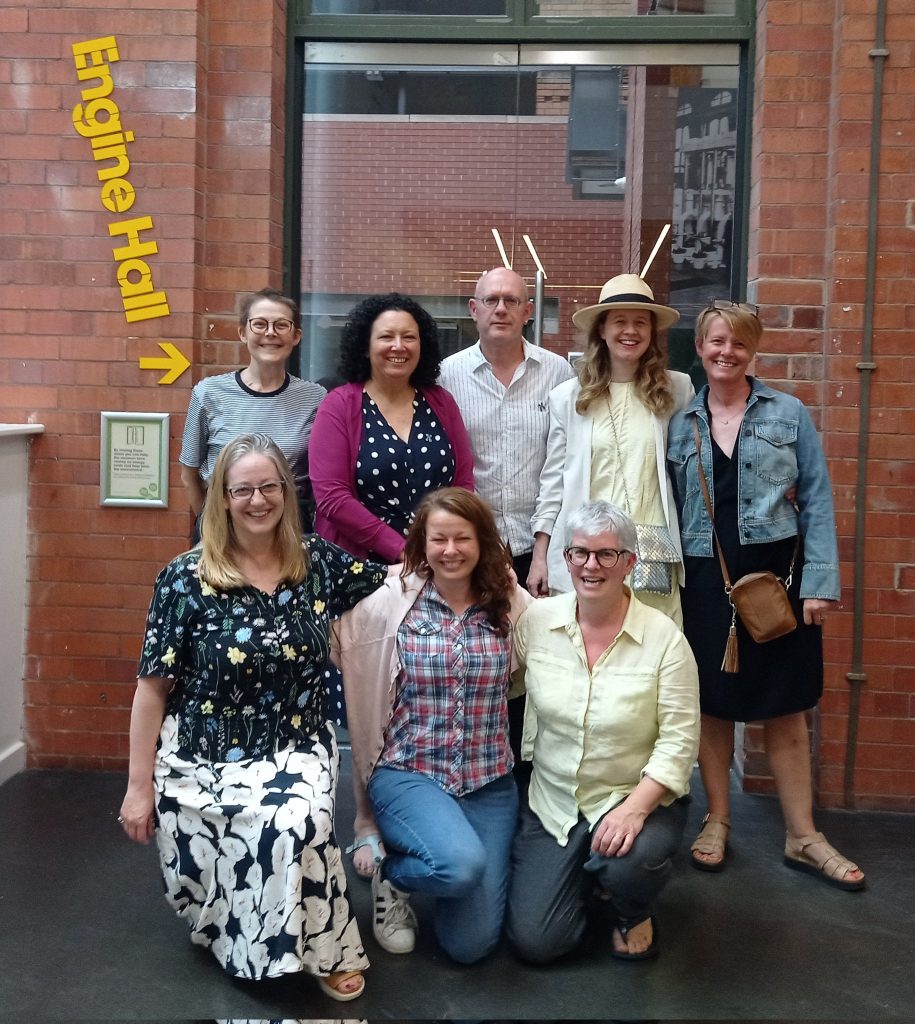Statement on the People’s History Museum

Sex Matters is a human-rights organisation that campaigns for clarity on sex in law and policy. We were founded because of the widespread, shameless, unlawful discrimination faced by people who hold and express “gender critical” beliefs.
On 25th June we held a board meeting in Manchester in the Coal Store Conference Room at the People’s History Museum.

Our board members are barrister Naomi Cunningham, solicitor Rebecca Bull, Dr Michael Biggs, Associate Professor in Sociology and Fellow of St Cross College at the University of Oxford, Dr Emma Hilton, Research Associate at the University of Manchester, accountant Julia Cassimo and Maya Forstater, successful claimant in the legal case which found that discrimination against people on the basis of gender-critical beliefs is unlawful.
The People’s History Museum is an inspiring location that “tells the story of the past, present and future of democracy in Britain” and rights that have been worth fighting for, including the vote, fair pay and protection of freedom of speech and belief.
We are part of that story of the fight for human rights and democracy.
We had an excellent board meeting and the staff we spoke to at the museum were welcoming and helpful.
At the meeting we discussed our recent parliamentary petition which received 109,462 signatures, and the subsequent Westminster Hall debate about the definition of sex in the Equality Act that took place in parliament.
Following the meeting we tweeted our thanks to the museum, including images of its newly displayed Manchester suffragette banner. This attracted a handful of comments from internet trolls smearing us as “hateful”.
The People’s Museum then published a statement apologising for hiring the room to us, and saying: “We are deeply upset by the situation, which arose from an external board meeting being held in a room hired at PHM by an organisation that we feel does not share our values. We did not do sufficient due diligence and we will learn from this.”
We are shocked and disappointed at this statement, which appears to be an apology for not discriminating, and a promise to discriminate in future.
We suggest that the board of the People’s Museum read the Equality Act 2010, look up the case of Forstater v CGD and revisit the museum’s commitment to the values of democracy and fairness. They should note that:
- Section 4 of the Equality Act 2010 (EA 2010) includes “religion or belief” among the act’s “protected characteristics”; and Section 10 defines “belief” as meaning “any religious or philosophical belief, and a reference to belief includes a reference to a lack of belief”.
- Case law has established that “gender critical” beliefs – that there are two sexes, that sex is immutable and important (and that “trans women” are men) – constitute a protected characteristic for the purposes of section 10 of the Equality Act 2010.
- Direct discrimination contrary to section 13 of the EA 2010 in relation to the protected characteristic of philosophical belief occurs wherever a person is treated less favourably because of a protected philosophical belief, or because of conduct which manifests a protected philosophical belief.
The right to hold and manifest religious and philosophical beliefs (and lack of belief) is a cornerstone of our pluralist society, which the People’s History Museum was founded to memorialise. Its displays celebrate the courage and integrity of activists who stood up for women’s rights and against discrimination in the past. That contrasts sharply with the museum’s denunciation today.
We will not be deterred from our human-rights work, and we have written to the People’s History Museum seeking to book the venue for a future event.
Update: As of 10:40am 30th June 2023, we note that the statement has now been removed pending legal advice.

